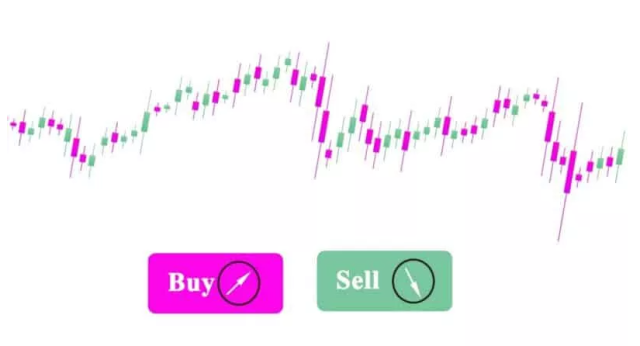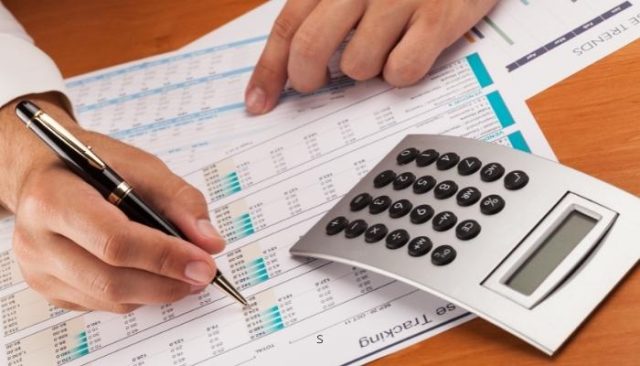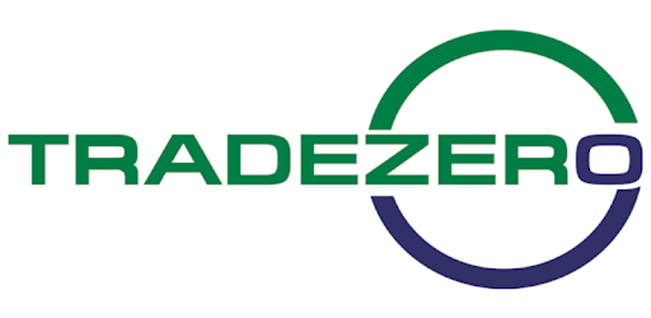Good Faith Violation: Traders Beginners Guide (2024)
By Jordan Blake
January 10, 2024 • Fact checked by Dumb Little Man

Want to jump straight to the answer? The best stock brokers for traders are Tradestation and Tradier
The #1 Stock and Forex Trading Course is Asia Forex Mentor
Good faith violations happen in almost every field of life, and it is something that you should look out after. Now, beginners who first step into the world of the Forex market usually do not know much about Good Faith violation even though they should know about the same. If you are also someone who does not know a lot about the Good Faith violation policies, then this article is meant for you, as we are going to tell you everything you need to know about Good faith violations.
This course has been prepared by Ezekiel Chew, who is the founder of Asia Forex Mentor, and he happens to be one of the most renowned instructors in the Stock and Forex market. You can find hundreds of videos of him circulating the internet, and he is also a part of several trading panels and Forex events. Ezekiel is also one of the most successful Forex traders on the planet, and he makes six figures trades on a regular basis.
So let's jump straight into the article, and figure out what do you exactly mean by Good Faith Violation?
What does Good Faith Violation mean

There are three main types of violations that exist in the US Markets and they are Good faith violation, free riding violation, and cash liquidation violation. When you make trades in the US stock markets through your brokerage account, you are required to make all the security purchase payments in full by the settlement date. Failure to do so results in violations.
A Good Faith violation takes place when in a situation where you have purchased a stock, and you sold it even before the funds that you used to buy the stocks initially were not settled. It is termed as a good faith violation, because when you added the extra money in your account prior to when the funds were settled because there was no good faith in use by the trader.
This might appear to be a bit confusing, especially for the newcomers, so let us try to explain things to you with a few examples. Consider, John who has a cash trading account whose current balance reads 0. He has no cash available for the trades, but he has purchased Amazon stocks worth $10,000. Now, suppose he sells his Tesla stocks on Monday and purchases a different stock. If the settlement date is on Wednesday, i.e T+2, then this does not count as a Good Faith Violation. However, if he sells the shares and purchases new ones after Monday, and before Wednesday, then it will indeed be counted as Good Faith Violation.
Settlement Dates and Funds

When you purchase stocks in the US market, the deal does not take place immediately, but momentarily. What this means is that as soon as you purchase stocks, they show up in the brokerage account you use to purchase stocks. You can either pay them the entire amount right now, or you can exploit the rules of the market, and wait for a few days until it is mandatory for you to pay the seller.
A Settlement Date is defined as the last day when you can make the seller the payment for the stocks that you have purchased, whereas the seller has to provide you with securities. The settlement date is different for different kinds of investments. For example, if you invested in Gov securities and options, then you have one business day to settle your accounts. On the other hand, if you are dealing primarily with bonds and stocks, then the settlement date is T+2 days from the time you purchase them.
Settled Funds

Settled funds are described as the incoming flow of cash whereas the settled funds are completely paid off for different securities. If your brokerage account boasts of enough settled funds, then you have the liberty of buying anything you want. One of the main advantages of buying security with social funds is that you have no time restriction in order to sell that securities investor protection corporation.
However, you are also required to face certain restrictions if your account balance is because of cash gained from unsettled funds of the sale of securities. However, you can always use the unsettled funds from long positions that are already existing to buy additional securities.
All you need to do is to make sure that the new purchase is not sold prior to the settlement dates for the original sales. It is so because it allows for you to generate funds for purchasing the stocks, even when the securities are not cleared for the current trade, and it will be accounted as a Good Faith Violation.
Cash Accounts Proceeds

Until now, we have told you different things about Good Faith Violation, and how it takes place in the stock markets. In order to understand Good Faith Violations, a bit clearer, let us have a look at a few examples.
Example 1: Let's assume that Mr. W sells Netflix stocks worth 8,000 dollars on Monday, and he immediately purchased Amazon stocks worth 8,000 dollars on Tuesday. Now, if Mr. W decides to get rid of his Amazon shares before Wednesday, which happens to be the settlement date for his Netflix shares, then that will indeed be accounted as a Good Faith violation, and for the right reasons because he sold the shares before he had the funds to go ahead, and realize the purchase.
Example 2: Let us consider Mr. X who has over 2k dollars in his account owing to unsettled activities. He had sold a stock worth 800 dollars the past Thursday, the settlement date for which is due the next Tuesday. Now, let's assume that Mr. X purchases Apple stocks worth 2600 dollars on Monday. A good faith violation will occur in this case only when he sells the stocks on the same day. It is so because the cash sale of 800 dollars was not enough to cover him buying this trade.
What are Margin and Cash Accounts

When it comes to opening a brokerage account so that you can make deals in the stock markets, you generally have two options: Margin accounts or Cash accounts.
If you decide to opt for a cash account, you need to deposit a fixed amount of money into your cash brokerage account, and you can make purchases only worth the amount that you have in your cash account. In simple terms, it means that if your current account balance is X dollars, you can purchase stocks worth X dollars only, and you cannot ask your broker to lend you some money with the stocks as a guarantee.
Having these accounts come with their own sets of advantages, and disadvantages, and only you can know which type of brokerage account suits your needs the best. For example, if you opt for a Cash account, you are indeed limiting your buying abilities, because you cannot borrow additional money with the stocks as your securities. On the other hand, it also helps you in preventing substantial losses.
On the other hand, if you opt for a Margins account, you can always use the stocks you own as securities and ask your broker to lend you some money with the stocks being held as security. This essentially doubles your buying potential, and you might be able to make a large amount of profit on the markets. However, it comes with certain risks of its own with the major one being the risk of losing all your money.
Three Strikes and a Suspension

Good Faith Violations are a common occurrence in the stock markets which is why you get some leniency if it's your first or second offense. However, once you have accumulated three violation charges in under the span of a year, your account might be restricted by your broker for a total period of 90 days. However, if you have performed a good faith violation, it is your broker's obligation to inform you of the same, and also about the sanctions that come along.
However, the stock market counts one day as one violation. What it means is that you can commit a number of violations in a day, and it will be still counted as one.
Other Types of Violations

Apart from Good Faith, there are two more types of violations that exist in the market: Cash liquidation, and Freeriding violation. You are performing a Freeriding Violation when you receive funds from selling stocks to a seller, and you use that fund to buy new securities and stocks.
Let's say Michael buys a particular stock for over 6,000 dollars but he doesn't make the payment immediately. Now, he sells the same stock for 7,000 dollars on Thursday and completes the payment on Wednesday. It is a primary case of Freeriding violation primarily because you used the money gained from the sale of the same stocks to buy the stocks. If you commit more than one free riding violation in one year, your account will be restricted for 90 days. However, if your account has some settled cash, you will still be able to purchase stocks and more.
A cash Liquidation violation takes place when you sell your fully paid securities, and use the money gained from that trade to buy new assets. Although many might argue that it is not a violation of any kind, the brokerage argues that you already have settled cash in your brokerage account prior to the settlement date.
Best Stock and Forex Trading Course

Asia Forex Mentor offers the best forex trading education in Asia. The course is set up so that you can earn money while learning. You'll be able to trade forex profitably with a skilled trader's help. In Singapore and other sites worldwide, tens of thousands of people from the United States, the United Kingdom, and other Asian countries have been taught.
Ezekiel Chew's teaching method is founded on the principle of return on investment, which states that if you invest $1, you will gain $3. It's not about zany strategies or elaborate procedures. Professional traders and financial organizations use his authorized system. He is the driving force behind the growth of various companies, including DBP, the Philippines' second-largest state-owned corporation.
Due to his strategy's effectiveness, many full-time traders have joined the program with little to no prior trading experience and emerged successful.
| RECOMMENDED TRADING COURSE | REVIEW | VISIT |
|---|---|---|
 | #1 Forex, Crypto and Stocks trading course. Ranked most comprehensive by Investopedia and Best by Benzinga. Free to Try! |  |
Best Stock Brokers
| Broker | Best For | More Details |
|---|---|---|
 | Advanced Traders Read Review | securely through Tradestation website |
 | Intuitive Platforms Read Review | securely through Tradier website |
 | Powerful Services at a Low Cost | securely through Tradezero website |
 | Professional Forex Traders Read Review | securely through Interactive Brokers website |
Conclusion: Good Faith Violation

If you do not want to get charged with Good Faith Violation charges, then it is a good practice to have settled cash in your brokerage account. Most traders recommend that you should try to remain patient, and trade the stocks only after three days. One of the best practices to reduce your chances of committing a good faith violation is by restricting your stock trading only to settled funds.
You also need to be really careful about the dates on which you make the transactions. Have sufficient funds, and always follow pattern day trading rules. Every Monday, when you are about to start trading, make sure that you have enough settled funds, and a decent cash balance.
If you want to sell securities, it is recommended to wait for a few days, and try to consult your firm about the same. With online trading, speed is of great importance because the prices of stocks can change drastically in a relatively short span of time. However, while making quick trades, it is important for you to know what the laws are, and whether you are breaking any of them intentionally.
Good Faith Violation FAQs
How bad is a good faith violation?
A Good Faith violation takes place when in a situation where you have purchased a stock, and you sold it even before the funds that you used to buy the stocks initially were not settled. It is termed as a good faith violation, because when you added the extra money in your account prior to when the funds were settled because there was no good faith in use by the trader.
A Good Faith violation takes place when in a situation where you have purchased a stock, and you sold it even before the funds that you used to buy the stocks initially were not settled. It is termed as a good faith violation, because when you added the extra money in your account prior to when the funds were settled because there was no good faith in use by the trader.
How long does a good faith violation last?
Good Faith Violations are a common occurrence in the stock markets which is why you get some leniency if it's your first or second offense. However, once you have accumulated three violation charges in under the span of a year, your account might be restricted by your broker for a total period of 90 days.
Can you trade unsettled funds?
No, you cannot use unsettled funds to buy stocks in day trade. However, once you use unsettled funds to buy stocks, you will have to wait for a total of 2 days before you can sell them.
| RECOMMENDED TRADING COURSE | REVIEW | VISIT |
|---|---|---|
 | #1 Forex, Crypto and Stocks trading course. Ranked most comprehensive by Investopedia and Best by Benzinga. Free to Try! |  |
Jordan Blake
Jordan Blake is a cultural commentator and trending news writer with a flair for connecting viral moments to the bigger social picture. With a background in journalism and media studies, Jordan writes timely, thought-provoking content on everything from internet challenges and influencer scandals to viral activism and Gen Z trends. His tone is witty, observant, and sharp—cutting through the noise to bring readers the “why” behind the “what.” Jordan’s stories often go deeper than headlines, drawing links to pop culture, identity, and digital behavior. He’s contributed to online media hubs and social commentary blogs and occasionally moderates online panels on media literacy. When he’s not chasing the next big trend, Jordan is probably making memes or deep-diving into Reddit threads. He believes today’s trends are tomorrow’s cultural history—and loves helping readers make sense of it all.













